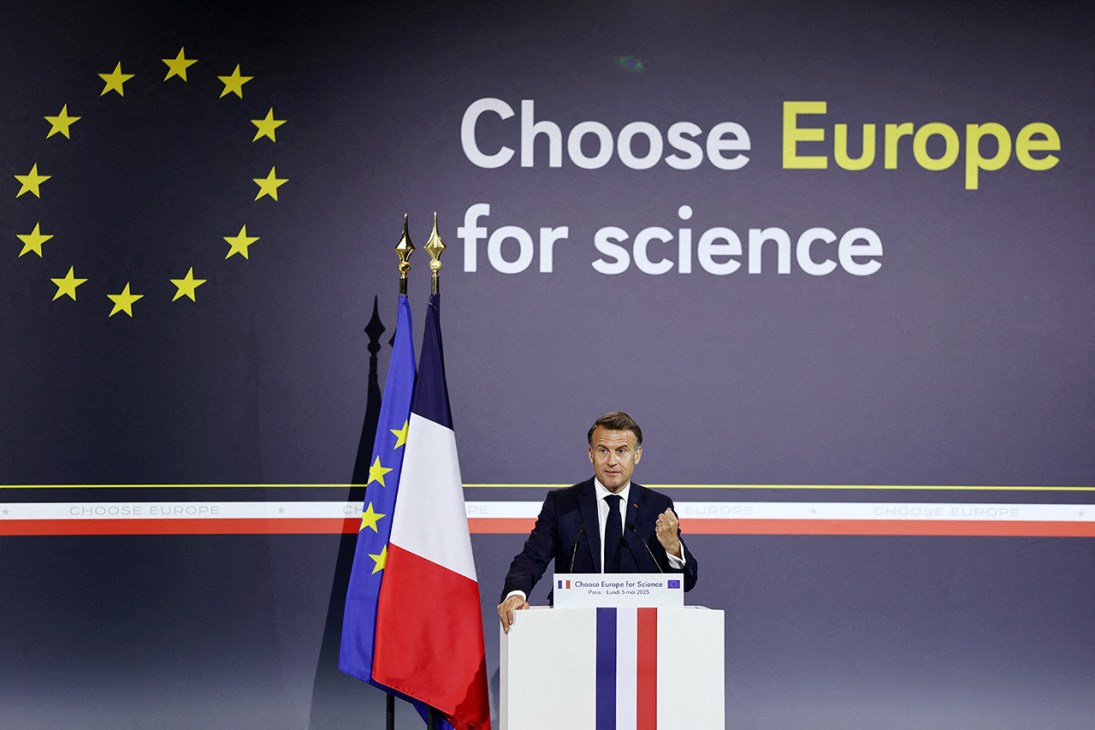Could Europe be about to benefit from Trump’s US brain drain?
Amid Donald Trump’s cuts to federal institutions and grants, more US-based scientists are considering jumping ship – and Europe will be waiting with open arms.
Is the world’s leading research-and-development (R&D) nation scaring away its best and brightest? As relations between the Trump administration and American universities grow increasingly confrontational – and sweeping cuts to government funding put thousands of scientific jobs in limbo – up to 75 per cent of US-based scientists say that they are considering leaving the country.
But the US’s loss could be Europe’s gain. The number of top researchers looking for a more welcoming environment is just the opportunity to start closing the R&D gap that has long existed between the Old Continent and the US.

Andrew Michael Liebhold is one such example. After almost four decades at the US Forest Service (USFS), the research entomologist accepted an offer to become chief scientist at the Czech University of Life Sciences in Prague, which funded his position with the help of investments by the European Commission.
“It turns out that I got out just in time,” Liebhold tells Monocle. A few months after his move, his previous department at the USFS – with roughly 1,500 staff, nearly a third of whom hold doctorates – came under threat when the Trump administration proposed major cuts to its funding by 2026. “I’ve received phone calls from former colleagues who are afraid they will be out of a job soon.”
The USFS is far from the only example. The National Oceanic and Atmospheric Administration (NOAA), which conducts critical climate studies, is also being targeted by the White House. Meanwhile, the National Institute of Health (NIH), which has supported some of the highest-quality research on healthcare and medicine, has already cancelled nearly $2bn (€1.7bn) in federal grants to US institutions. The breadth and depth of these cuts has led to thousands of scientists and researchers losing funding for their studies – and even their jobs. “The Trump administration’s logic seems to be that if we don’t research an issue, then it will go away – at least from the public sphere,” says Liebhold.
France has been especially active in efforts to capitalise on the uncertainty in the US. In 2017, Emmanuel Macron called on nations to “Make our planet great again,” inviting US climate scientists to work in France, after Donald Trump pulled his country out of the Paris Climate Accords. In May this year, France also launched a new national programme called “Choose France for Science”. Macron has since announced that additional funds would draw scientists from across disciplines, insisting that his nation “must become a refuge”.
Aix-Marseille University in the south of France has already welcomed new US recruits – and is set to hire more. “Our colleagues in the US are restricted in their academic freedom,” says the university’s president, Eric Berton. “It’s in reaction to this that we have created our programme to grant them scientific asylum.” To date, the university has received hundreds of applications from researchers at institutions including Columbia, Harvard, MIT and Nasa.
For many scientists who are out of a job, or fear that they soon will be, the prospect of a fresh start in Europe will appeal, despite lower salaries and budgets. With France even considering a scientific refugee status as a result of the US exodus, the country is laying the groundwork to capture that talent. While the US shoots itself in the foot, Europe might receive a shot in the arm.



